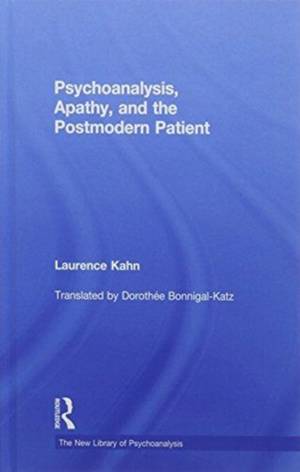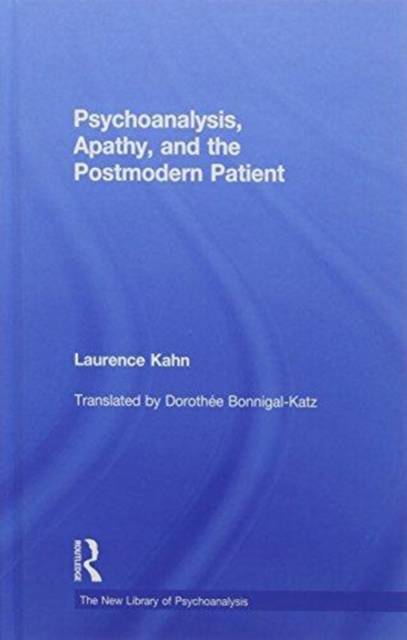
- Retrait gratuit dans votre magasin Club
- 7.000.000 titres dans notre catalogue
- Payer en toute sécurité
- Toujours un magasin près de chez vous
- Retrait gratuit dans votre magasin Club
- 7.000.0000 titres dans notre catalogue
- Payer en toute sécurité
- Toujours un magasin près de chez vous
Description
The postmodern turn underlies a new development in psychoanalysis, which has theoretical and practical implications. Psychoanalysis, Apathy, and the Postmodern Patient involves a detailed reading of the main psychoanalytic texts that mark out this extended development, along with a critical examination of the changes in the major Freudian concepts. At stake are the tenets of infantile sexuality, 'psychic reality, ' unconscious determinism, the fulfilment of unconscious desire and free association.
Spécifications
Parties prenantes
- Auteur(s) :
- Editeur:
Contenu
- Nombre de pages :
- 118
- Langue:
- Anglais
- Collection :
Caractéristiques
- EAN:
- 9781138068094
- Date de parution :
- 13-06-18
- Format:
- Livre relié
- Format numérique:
- Genaaid
- Dimensions :
- 156 mm x 234 mm
- Poids :
- 381 g

Les avis
Nous publions uniquement les avis qui respectent les conditions requises. Consultez nos conditions pour les avis.






